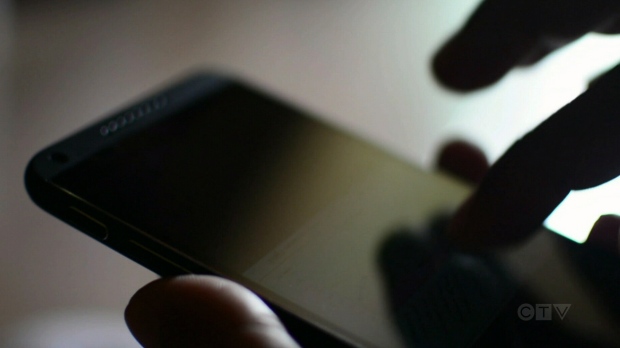TORONTO —
As cases of COVID-19 in Canada escalate, scammers have begun taking advantage of the public’s fears surrounding the pandemic.
On Thursday, Prime Minister Justin Trudeau warned Canadians about a “text scam” meant to exploit people who had applied for Canada’s new emergency aid program. The text, which advises the user that their benefit money had been deposited, includes a link for users to click for confirmation.
This message is not from the federal government.
“I’m sorry to say there appears to be a text scam going around on the new emergency response benefit,” Trudeau said Thursday. “I want to remind everyone that the government’s website is the best place to find reliable information on everything we’re doing.”
Samantha McAdam, a writer in Toronto, told CTV News Toronto she recently received a text supposedly from the Canadian government telling her that $1,375 had been put into her account.
“Quite honestly, like a lot of people I’m at home with my children and didn’t get a full night’s sleep, so for a second I thought: ‘Is this real?’” she said.
Fortunately, she didn’t fall for it.
Jeff Thomson, a spokesperson for the Canadian Anti-Fraud Centre, said his organization has received reports of several similar text scams related to COVID-19. He said the links in these texts will typically bring you to a fake website which will ask for your banking information.
“It’s designed to harvest your personal financial information at the end of the day,” he said.
Other fraudsters have looked to take advantage of the public’s COVID-19 fears by sending out texts claiming to offer free points to Loblaws and Shoppers Drug Mart. Shoppers Drug Mart later sent its own text to customers to debunk the scam.
There is also fraudulent information online meant confuse and trick the user. One such scam involved a fake news article doctored to appear like it was from CTV News, which was circulated through the messaging application WhatsApp.
On Thursday, the British Columbia Securities Commission warned the public of an online scam involving job opportunities that promised the ability to work from home as a securities trader during the pandemic. According to the commission, the ads indicate interested parties would be able to trade without a licence and would keep a large portion of their profits, provided they pay a fee.
The BCSC said anyone in the business of trading securities must be registered with the province or territory where they live, minus some exceptions.
“The BCSC expects that similar scams will continue to increase as more Canadians are looking for alternative sources of income due to layoffs or requirements to stay home during the COVID-19 crisis,” the commission wrote in a news release.
Last week, the Canadian Securities Administrators warned investors to be careful of companies claiming to sell a vaccine or treatment for COVID-19, as there are currently no such approved products.
There’s also growing anger surrounding the perceived price-gauging at some stores and in the secondary market.
On Thursday, Ontario Premier Doug Ford slammed Pusateri’s Fine Foods, a high-end grocery store in Toronto, and vowed to put an end to price gouging after images emerged of single containers of Lysol wipes being sold for $29.99 at one of their stores.
“[The] vast majority of companies around this province, around this country, are trying to help people out [and] people have the nerve to actually jack up their prices to $30 a container for hand wipes? It’s beyond belief,” Ford told reporters.
The store has since apologized for the “oversight” and offered refunds for anyone who paid the $29.99.
In British Columbia, the government has moved to ban the resale of food, medicine and cleaning supplies in an effort to limit price gouging and hoarding of essential products.
“These measures will help end hoarding of our grocery stores and the shameful black market for medical supplies,” said B.C. Minister of Public Safety Mike Farnworth.
With files from CTVNews.ca Ottawa News Bureau Online Producer Rachel Aiello and CTV News Toronto
Source link
